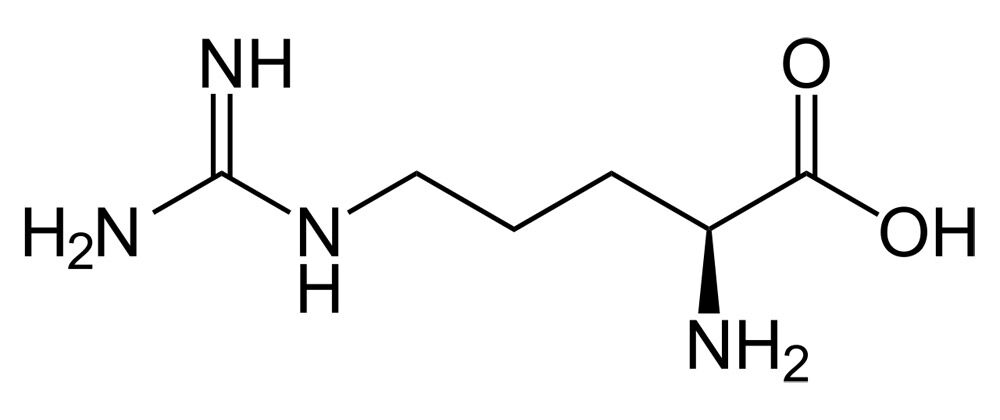Arginine is an amino acid isolated in 1886 by Schultz and Steiger from lupine seeds and identified by Heiden in 1895 as a protein component.
From a chemical point of view it is classified as conditionally essential (such as glycine, glutamine, proline and taurine), as it plays a key role only in certain physiological moments of life, such as adolescence and puberty.
Below I present a list of the various functions (best known and studied) of this protein component:

1 - Synthesis of nitric oxide
Arginine is commonly proposed as an amino acid capable of promoting a dilation of blood vessels , or vasodilation , thus enjoying a high consideration in the world of bodybuilding.
Administration of this compound is claimed to be able to stimulate nitric oxide (NO) synthesis within blood vessels.
NO is precisely a molecule capable of stimulating vasodilation.
2 - Guluconeogenesis and Glycogenosynthesis
The idea is that arginine is able to increase blood flow to the tissues resulting in an increased supply of carbohydrates to the muscles (glucose obtained from other organic compounds), ultimately increasing its absorption and storage in the form of glycogen.
3 - Fertility
The numerous clinical trials published in this regard seem to agree on the usefulness of L-Arginine in improving the motility and quality of spermatozoa in patients with oligospermia.
Also this effect linked to its intake would seem once again linked to the vasodilation induced by the molecule.
4 - Synthesis of Creatine and other amino acid derivatives, fundamental in the cellular economy
5 - Detoxification of nitrogen residues
Arginine has been shown to play a detoxifying role in the body: avoiding the accumulation of ammonia (NH3), resulting from the deamination process of adenosine monophosphate, a process that occurs following intense muscle work and is responsible for the onset of sense of fatigue.
6 - Immunostimulating action
The integration of arginine helps to enhance the synthesis and activity of cytotoxic lymphocytes and Natural Killers cells, dedicated to the protection of the organism against exogenous pathogens and neoplastic cells.
7 - Insulinogenic action
Arginine is the most powerful insulinogenic amino acid, that is, it is the amino acid that most of all is able to stimulate the secretion of insulin by the pancreas.
Furthermore, insulin itself stimulates vasodilation and blood flow by increasing nitric oxide synthesis.
Hence, arginine stimulates insulin and insulin stimulates nitric oxide thereby leading to vasodilation.
8 - Effect on GH secretion
The effect of arginine on growth hormone stimulation appears to be enhanced by the concomitant intake of other amino acids, in particular ornithine (synthesized from arginine).
The synergistic intake of ornithine and arginine can also have a favorable effect on the reduction of body fat. Results of various researches could partly confirm that even low dosages of these 2 amino acids taken in synergy, could bring various benefits, in terms of greater secretion of GH and IGF-1, increased suppression of stress symptoms and improved body composition.
Supplementation of arginine
To conclude a few notes about l-arginine supplementation:
-
The dosages currently used in the literature are between 3 and 20 g per day, divided into several assumptions.
-
In sports, the most used daily dose of Arginine is that of 3 grams, generally taken in the pre-workout phases or before night rest; in the cardiology or andrology field, on the other hand, the dose can rise up to 10 g per day.
-
taking arginine is not recommended in case of allergy to protein foods, to subjects suffering from bone diseases or herpesvirus, to subjects suffering from schizophrenic disorders and to those suffering from argininemia.
-
Among the foods richest in arginine are: peanuts, broad beans, chickpeas, lentils, soy, almonds, hazelnuts, meat and egg yolk.
